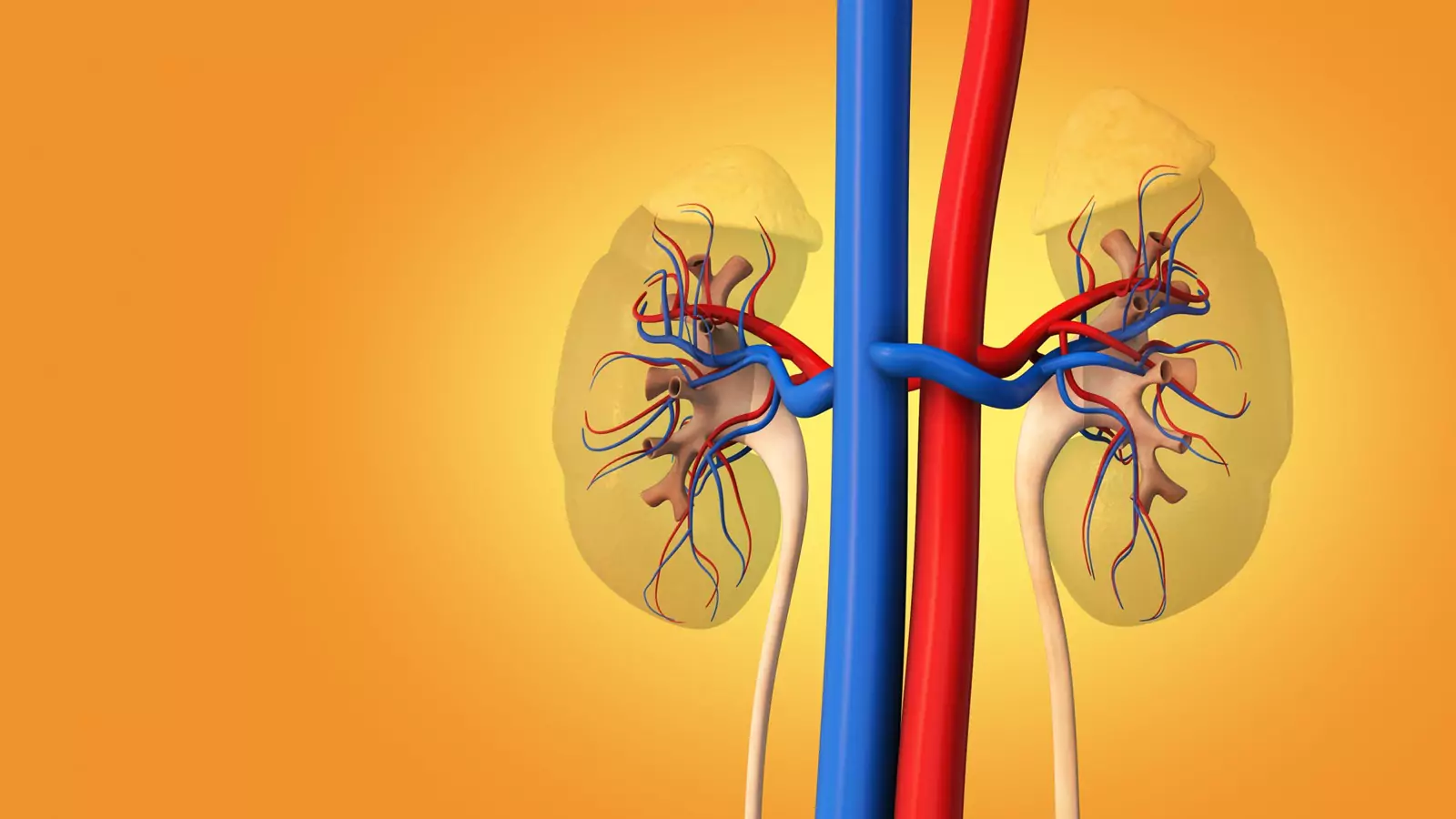
UP TO 40% OFF SITEWIDE






Understanding Diabetic Kidney Disease: Beyond the Basics


Table of Contents
- What is Diabetic Kidney Disease?
- The Connection between Diabetes and Kidney Disease
- The Progression of Diabetic Kidney Disease
- The Impact of Diabetic Kidney Disease
- Health Complications and Their Ramifications
- The Lifestyle Adjustments Required
- Prevention and Management of Diabetic Kidney Disease
- Importance of Regular Check-ups
- Diet and Exercise
- The Role of Weight Management
- SugarMD Weight Loss Formula
- The Power of Education
- The Importance of Support
- Medication and Treatment Options
- Blood Sugar Control
- Blood Pressure Management
- Treatment for Kidney Failure
- Personalized Treatment Approach
- The Role of SugarMD Weight Loss Formula in Managing Diabetes
- SugarMD Super Berberine
- Conclusion
- FAQs
- What are the symptoms of diabetic kidney disease?
- How long can a person live with diabetic kidney disease?
- What are the 4 stages of diabetic kidney disease?
- How serious is diabetic kidney disease?
- Can diabetic kidney disease be reversed?
- About The Author
Diabetic kidney disease, also known as diabetic nephropathy, is a severe health complication that can arise in individuals with diabetes. This condition is a direct result of damage inflicted on the kidneys, which, if not managed appropriately, can escalate to kidney failure.
What is Diabetic Kidney Disease?
Diabetic kidney disease is a medical condition where the kidneys lose their ability to filter waste and excess fluids from the blood effectively. This inability is primarily due to the damage caused by high blood sugar levels, a common occurrence in individuals with diabetes. When the kidneys fail to perform their filtering function, it leads to a buildup of waste products in the body.
This accumulation can be detrimental if not addressed promptly, as it can cause various health complications. The kidneys are vital organs that perform several essential functions. They help regulate blood pressure, maintain fluid balance, and remove waste products from the body. When these functions are compromised due to diabetic kidney disease, it can lead to serious health issues.
The Connection between Diabetes and Kidney Disease
Diabetes is a chronic health condition characterized by elevated blood sugar levels. These high levels can cause damage to various organs in the body over time, including the kidneys. This is why individuals with diabetes are at a higher risk of developing kidney disease.
In individuals with diabetes, the body either doesn't produce enough insulin or can't use insulin effectively. Insulin is a hormone that helps regulate blood sugar levels. When there's not enough insulin or when the body can't use it properly, blood sugar levels rise. Over time, these high blood sugar levels can cause damage to the blood vessels in the kidneys, impairing their ability to filter waste from the blood effectively.
The Role of Insulin Resistance
Insulin resistance is a common feature of type 2 diabetes. It occurs when the body's cells become resistant to the effects of insulin. When this happens, the body needs more insulin to get glucose into the cells. The pancreas tries to keep up by making more insulin, but over time, it can't make enough to keep blood glucose levels in check. As a result, blood sugar levels rise.
This rise in blood sugar levels can cause damage to various organs in the body, including the kidneys. Over time, this damage can lead to diabetic kidney disease. The kidneys' filtering units, called nephrons, are particularly vulnerable to damage from high blood sugar levels. Over time, the high blood sugar levels in the blood can cause these filtering units to become scarred and leaky. This damage can lead to protein in the urine, a common early sign of kidney disease.
The Progression of Diabetic Kidney Disease
The progression of diabetic kidney disease can be divided into five stages, each characterized by different levels of kidney function and varying symptoms. Understanding these stages can help in early detection and effective management of the disease.
Stage 1: Normal Kidney Function
In the initial stage of diabetic kidney disease, the kidneys are functioning normally, and there are typically no noticeable symptoms. Despite the absence of symptoms, microscopic damage to the kidneys may already be occurring.
This damage is usually caused by high blood sugar levels, which can harm the tiny blood vessels in the kidneys. Regular check-ups and blood tests are crucial during this stage to detect any early signs of kidney damage.
Stage 2: Mild Kidney Damage
As the disease progresses to the second stage, the kidneys start to show signs of mild damage. They may begin to leak small amounts of protein, known as albumin, into the urine. This condition, known as microalbuminuria, can be detected through urine tests. Still, symptoms may not be noticeable at this stage, making regular medical check-ups essential.
Stage 3: Moderate Kidney Damage
In the third stage of diabetic kidney disease, the kidneys' damage becomes more severe, and they may leak an increased amount of protein into the urine. This condition, known as macroalbuminuria, is a clear sign that the kidneys aren't functioning as they should. Symptoms such as fatigue, swelling in the hands and feet, and frequent urination may begin to appear. Blood pressure may also start to rise due to the kidneys' impaired ability to regulate it.
Stage 4: Severe Kidney Damage
By the fourth stage, the kidneys have suffered severe damage. They struggle to filter waste and excess fluids from the blood effectively, leading to a buildup of waste products in the body. Symptoms become more pronounced and may include nausea, vomiting, loss of appetite, and changes in urine output. High blood pressure and anemia are also common in this stage.
Stage 5: Kidney Failure
The final stage of diabetic kidney disease is kidney failure, also known as end-stage renal disease (ESRD). At this point, the kidneys have lost nearly all their ability to function effectively. Dialysis, a treatment that artificially filters waste products from the blood, or a kidney transplant, may become necessary to sustain life. Symptoms at this stage are severe and can significantly impact a person's quality of life.
In essence, the progression of diabetic kidney disease is a slow and gradual process that can take many years. Regular medical check-ups, blood tests, and urine tests are crucial for early detection and management of the disease. By understanding the stages of diabetic kidney disease and the associated symptoms, individuals can take proactive steps towards managing their condition and maintaining their quality of life.
The Impact of Diabetic Kidney Disease
Diabetic kidney disease, a common complication of diabetes, can dramatically alter an individual's health status and way of life. It's not just a disease; it's a life-altering condition that demands significant adjustments and constant vigilance.
Health Complications and Their Ramifications
The health implications of diabetic kidney disease are profound and far-reaching. If not promptly and effectively managed, it can escalate to severe health issues, the most critical being kidney failure. Kidney failure, also known as end-stage renal disease, is a severe condition where the kidneys cease to function as they should. When this happens, the body is unable to filter waste products, leading to a buildup of toxins in the bloodstream.
The treatment options for kidney failure are limited and demanding. Dialysis, one of the most common treatments, involves a machine performing the function of the kidneys, filtering waste from the blood. This process is time-consuming, often requiring sessions multiple times a week, and can significantly impact a person's lifestyle and freedom. In some cases, a kidney transplant may be necessary.
This involves replacing the failing kidney with a healthy one, usually from a donor. While a transplant can improve quality of life and longevity, it's not without its challenges. The procedure carries risks, and recipients must take lifelong medication to prevent their body from rejecting the new organ.
The Lifestyle Adjustments Required
Living with diabetic kidney disease is not just about managing symptoms; it's about adapting to a new way of life. The lifestyle changes required are substantial and multifaceted, affecting various aspects of daily life. Dietary changes are often necessary to manage the disease and protect kidney function. This typically involves limiting certain nutrients, such as sodium, protein, and potassium, which can be hard on the kidneys.
It also means embracing a diet rich in fruits, vegetables, and whole grains, which can help regulate blood sugar levels and support overall health. Regular physical activity is another crucial aspect of managing diabetic kidney disease. Exercise can help control blood sugar levels, reduce blood pressure, and maintain a healthy weight, all of which are beneficial for kidney health.
However, it's important to find a balance and choose activities that are enjoyable and sustainable in the long term. Medication is also a key part of managing diabetic kidney disease. This can include drugs to control blood sugar levels, manage blood pressure, and protect the kidneys. Adherence to medication regimens can be challenging, but it's crucial for slowing the progression of the disease and maintaining quality of life.
Prevention and Management of Diabetic Kidney Disease
While diabetic kidney disease is a serious condition, it's not a life sentence. There are steps that can be taken to prevent and manage it, allowing individuals to lead fulfilling lives despite the diagnosis.
Importance of Regular Check-ups
Regular check-ups are the cornerstone of early detection and management of diabetic kidney disease. These aren't just routine visits to the doctor; they are proactive measures to safeguard your health. During these check-ups, healthcare professionals conduct blood and urine tests to monitor kidney function and detect any signs of damage. Blood tests can reveal how well your kidneys are filtering waste from your body.
A lower filtration rate could indicate kidney damage. Urine tests, on the other hand, can detect protein, specifically albumin, which isn't usually present in urine. High levels of albumin can be a sign of kidney damage. Regular check-ups also provide an opportunity to discuss any symptoms or concerns with your healthcare provider. They can adjust your treatment plan as necessary, ensuring it remains effective as your condition changes.
Diet and Exercise
A healthy diet and regular exercise are two lifestyle changes that can have a significant impact on the management of blood sugar levels and the reduction of the risk of kidney damage. When it comes to diet, it's important to eat a balanced diet, rich in fruits and vegetables.
These foods are high in fiber and can help regulate blood sugar levels. Limiting the intake of sodium can help control blood pressure, reducing the risk of kidney damage. Regular exercise, on the other hand, can help maintain a healthy weight and increase insulin sensitivity. Both of these factors can help control blood sugar levels and reduce the risk of kidney damage.
The Role of Weight Management
Weight management plays a crucial role in preventing and managing diabetic kidney disease. Maintaining a healthy weight can help control blood sugar and blood pressure levels, reducing the risk of kidney damage.
Physical activity is an effective way to manage weight. It can also help lower blood sugar levels and improve blood pressure, further protecting the kidneys.
SugarMD Weight Loss Formula

Managing diabetes and maintaining a healthy weight are crucial in preventing and managing diabetic kidney disease. This is where SugarMD Weight Loss Formula can help.SugarMD Weight Loss Formula is a powerful supplement designed to help you achieve your weight loss goals.
It works by targeting stubborn body fat and accelerating your metabolism, allowing you to burn calories and shed unwanted pounds quickly and safely. By helping you to lose weight and manage your diabetes, SugarMD Weight Loss Formula can play a crucial role in preventing and managing diabetic kidney disease. It's a valuable tool in your health management toolkit.
The Power of Education
Education is a powerful tool in the prevention and management of diabetic kidney disease. Understanding the disease, its risk factors, and its potential complications can empower individuals to take proactive steps towards managing their health.
The Importance of Support
Living with diabetic kidney disease can be challenging, but you don't have to do it alone. Support from healthcare professionals, family, and friends can make a significant difference. Support groups can also provide a safe space to share experiences and learn from others living with the same condition.
In conclusion, while diabetic kidney disease is a serious condition, it can be prevented and managed with regular check-ups, a healthy diet and regular exercise, appropriate medication, weight management, education, and support.
Medication and Treatment Options
When it comes to managing diabetic kidney disease, there are a variety of medications and treatments available. These are designed to help control blood sugar levels, manage blood pressure, and treat kidney failure if it occurs.
Blood Sugar Control
The first line of defense in managing diabetic kidney disease is controlling blood sugar levels. High blood sugar levels can cause damage to the kidneys over time, so keeping these levels in check is crucial. This is often achieved through a combination of diet, exercise, and medication.
Medications for blood sugar control can include insulin injections and oral medications. Insulin injections are used when the body is not producing enough insulin, a hormone that regulates blood sugar levels. Oral medications, on the other hand, can help the body use insulin more effectively or slow the absorption of sugar in the digestive tract.
Blood Pressure Management
High blood pressure can exacerbate kidney damage in people with diabetes. Therefore, managing blood pressure is a key aspect of treating diabetic kidney disease. There are several types of medications that can help lower blood pressure.
These include ACE inhibitors, angiotensin II receptor blockers (ARBs), and diuretics. ACE inhibitors and ARBs work by relaxing blood vessels, which can lower blood pressure and reduce strain on the kidneys. Diuretics help the kidneys remove excess fluid from the body, which can also help lower blood pressure.
Treatment for Kidney Failure
In advanced stages of diabetic kidney disease, kidney failure may occur. When this happens, the kidneys are no longer able to filter waste and excess fluids from the blood effectively. This can lead to a buildup of waste products in the body, which can be harmful if not treated. There are two main treatments for kidney failure: dialysis and kidney transplantation.
Dialysis is a procedure that uses a machine to filter waste and excess fluids from the blood. This can be done at a dialysis center or at home with the help of a healthcare provider. A kidney transplant, on the other hand, involves replacing the damaged kidneys with a healthy kidney from a donor. This can be a complex procedure and requires lifelong medication to prevent the body from rejecting the new kidney.
Personalized Treatment Approach
It's important to note that the treatment for diabetic kidney disease is often personalized to the individual's needs. Factors such as age, overall health, the extent of the disease, and personal preferences are taken into account when determining the best course of treatment. In addition to medication and treatments, lifestyle changes such as maintaining a healthy diet, regular exercise, and quitting smoking can also play a crucial role in managing diabetic kidney disease.
Regular check-ups are also important to monitor the disease progression and adjust treatment as necessary. In essence, while diabetic kidney disease is a serious condition, there are numerous medications and treatments available to manage it. By working closely with healthcare providers, individuals with diabetic kidney disease can lead active and fulfilling lives.
The Role of SugarMD Weight Loss Formula in Managing Diabetes
Managing diabetes and maintaining a healthy weight are crucial in preventing and managing diabetic kidney disease. This is where SugarMD Weight Loss Formula can help.
SugarMD Super Berberine
 SugarMD Super Berberine is a superior supplement for those seeking to maintain healthy glucose metabolism and reduce inflammation. Unlike other supplements, it utilizes a potent blend of dihydroberberine and 100% pure Ceylon cinnamon to ensure that blood sugar remains in a healthy range.
SugarMD Super Berberine is a superior supplement for those seeking to maintain healthy glucose metabolism and reduce inflammation. Unlike other supplements, it utilizes a potent blend of dihydroberberine and 100% pure Ceylon cinnamon to ensure that blood sugar remains in a healthy range. Additionally, this formula is safe and effective for long-term use. Regular use of this product will lead to a significant reduction in inflammation, which is a well-known contributor to a wide range of health issues. If you're looking for a supplement that can help you maintain healthy glucose levels while reducing inflammation, SugarMD Super Berberine is the perfect choice.
Conclusion
Diabetic kidney disease is a serious condition that can have significant impacts on a person's health and quality of life. However, with early detection, proper management, and lifestyle changes, it's possible to live a healthy and fulfilling life with this condition.
FAQs
What are the symptoms of diabetic kidney disease?
Symptoms can include fatigue, swelling in the hands and feet, frequent urination, nausea, vomiting, and changes in urine output.
How long can a person live with diabetic kidney disease?
The progression of the disease varies from person to person. With proper management, a person can live many years with the condition.
What are the 4 stages of diabetic kidney disease?
The stages include early-stage with no noticeable symptoms, moderate stage with some symptoms, severe stage with clear symptoms, and end-stage renal disease.
How serious is diabetic kidney disease?
It's a serious condition that can lead to kidney failure if not properly managed. However, with early detection and proper management, it's possible to live a healthy life.
Can diabetic kidney disease be reversed?
While the damage done to the kidneys cannot be reversed, the progression of the disease can be slowed with proper management.
About The Author
Meet Dr. Ahmet Ergin a highly skilled and dedicated endocrinologist with a passion for diabetes care. Dr. Ergin earned his medical degree with honors from Marmara University in Istanbul. He completed internal medicine residency and endocrinology fellowship at Cleveland Clinic.
Dr. Ergin is board-certified in Internal Medicine, Endocrinology, Diabetes, and Metabolism due to his vast medical expertise. He's a certified diabetes educator, author of "The Ultimate Diabetes Book," and founder of "the SugarMD YouTube channel."
Dr. Ergin offers exceptional diabetes care to his patients in Port Saint Lucie, FL, helping them manage effectively. Disclaimer: These statements have not been evaluated by the Food and Drug Administration. Information on this website isn’t intended to treat, cure or prevent any disease. Discuss with your doctor and do not self-treat.
Written By Dr. Ahmet Ergin
466 total articles
Meet Dr. Ahmet Ergin, a highly skilled and dedicated endocrinologist with a passion for diabetes care. Dr. Ergin earned his medical degree with honors from Marmara University in Istanbul. He completed internal medicine residency and endocrinology fellowship at Cleveland Clinic. Dr. Ergin is board-certified in Internal Medicine, Endocrinology, Diabetes, and Metabolism due to his vast medical expertise. He's a certified diabetes educator, author of “The Ultimate Diabetes Book,” and founder of “the SugarMD YouTube channel.” Dr. Ergin offers exceptional diabetes care to his patients in Port Saint Lucie, FL, helping them manage effectively. For a closer look into his insights and experiences, connect with Dr. Ahmet Ergin on LinkedIn, Instagram, and YouTube.”
Disclaimer: These statements have not been evaluated by the Food and Drug Administration. Information on this website isn't intended to treat, cure or prevent any disease. Discuss with your doctor and do not self-treat.
Products













